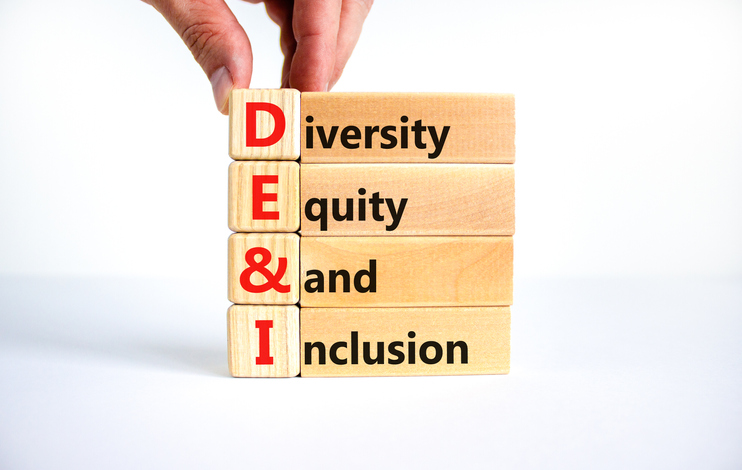Higher education divided by diversity rules, as states, universities, and academics push back against social justice bureaucracy.
Is the Diversity, Equity, and Inclusion Pendulum Due to Swing Back? asked a Paideia Times headline in the fall of 2022. The anecdotal answer appears to be a modified yes.
The UNC-Chapel Hill board of governors is ditching its requirements for potential employees to “affirmatively ascribe to or opine about beliefs, affiliations, ideals affiliations, ideals or principles…as a condition to admission, employment, or professional advancement,” as well as establishing new rules reinforcing free speech and debate.
A survey conducted by the Foundation for Individual Rights and Expression (FIRE) reports that half of university professors disapprove of diversity statement mandates and believe that such statements only serve as an “ideological litmus test that violates academic freedom.” However, the other half believe such statements “are a justifiable requirement for a university job.”
A Chronicle of Higher Education analysis shows a concerted effort to change the ways colleges recruit and retain students of color, reporting that state lawmakers in 13 states have introduced at least 21 bills to restrict DEI efforts.
Proponents of the measures argue that they are needed to ensure intellectual diversity at institutions faced by DEI bureaucracies enforcing onerous and unfair hiring statements required of potential faculty. DEI proponents, however, contend that loss of DEI rules may damage recruitment and retention of students of color and put institutions afoul of accreditation standards.
Two professors from Carlton College wrote an essay pointing out that DEI and academic freedom are, in fact, often in conflict despite what HR or PR departments might wish to believe, citing the Hamline University case where a Muslim student was able to have a professor fired for showing a 14th century image of the Prophet Muhammad in class.
Similarly, Matthew Spalding, vice president of Hillsdale College and dean of its Van Andel Graduate School of Government in Washington, as well as one of the trustees appointed by Ron DeSantis to the board of the New College of Florida (see PT, The DeSantis Watch: Could He Be Running for President?), make the case that “DEI Spells Death for the Idea of a University.”
“DEI may be the heart of the woke movement,” says Spalding, “but it deadens the academic mind.”
In Utah there may be a bit of a reprieve for DEI, as Republican state Sen. John Johnson, also a professor of data analytics and information systems at Utah State University, sent an update to a bill that he had previously introduced to the Senate Revenue and Taxation Committee. His adjustment would change the legislation from prohibiting the funding of “diversity, equity and inclusion offices or officers” at Utah universities to require the Education Interim Committee to conduct a study of DEI programs at these institutions. But he was clear that his intent in softening the bill was not to back away from the dismantling of the DEI bureaucracy, but only to bring the parties together for a “robust discussion” on the issue.
Finally, at the University of Virginia, as a New York Times headline has it, “…an alumnus attacked diversity programs. Now he is on the board.”
The University of Texas System suspended any new DEI programs and is investigating current programs after Texas governor Greg Abbott stopped the state’s use of the wildly popular (in a left-leaning education establishment) Diversity Equity Inclusion hiring policies, citing violations of federal and state employment-discrimination laws.
According to a statement by the state’s Board of Regents, its leaders “welcome, celebrate, and strive for diversity on our campuses… [but] DEI efforts have strayed away from the original intent to now imposing requirements.”
It may not be much of a surprise that Louis K. Bonham, an intellectual property litigator, graduate of UT (BA ’83, JD ’86), and a onetime law clerk for a judge on the U.S. Court of Appeals for the Fifth Circuit, wrote a letter to Abbott stating “you own the spread of illegal DEI programs at Texas universities,” pointing out that Abbott was “in office long enough to have appointed every single regent at every Texas state university” and that these same regents, “who are supposed to protect Texans’ interests, and not merely enjoy luxury accommodations at sporting events…have done [nothing] to put a stop to these illegal activities.”
Elsewhere in Texas, efforts to cultivate a more welcoming climate and be inclusive have come up short at Texas A&M University. By its own measures, the campus climate was worse in 2020 as fewer whites, Blacks, and Hispanics felt like Aggies than they did in 2015 or 2017.
Meanwhile, UT Austin is being sued by an outspoken finance professor alleging that his job, salary, research opportunities, and academic privileges have been threatened in retaliation for his public criticisms of DEI policies and programs and critical race theory.
Originally published by Paideia Times. Republished with permission.
For more great content from School Reform News.
